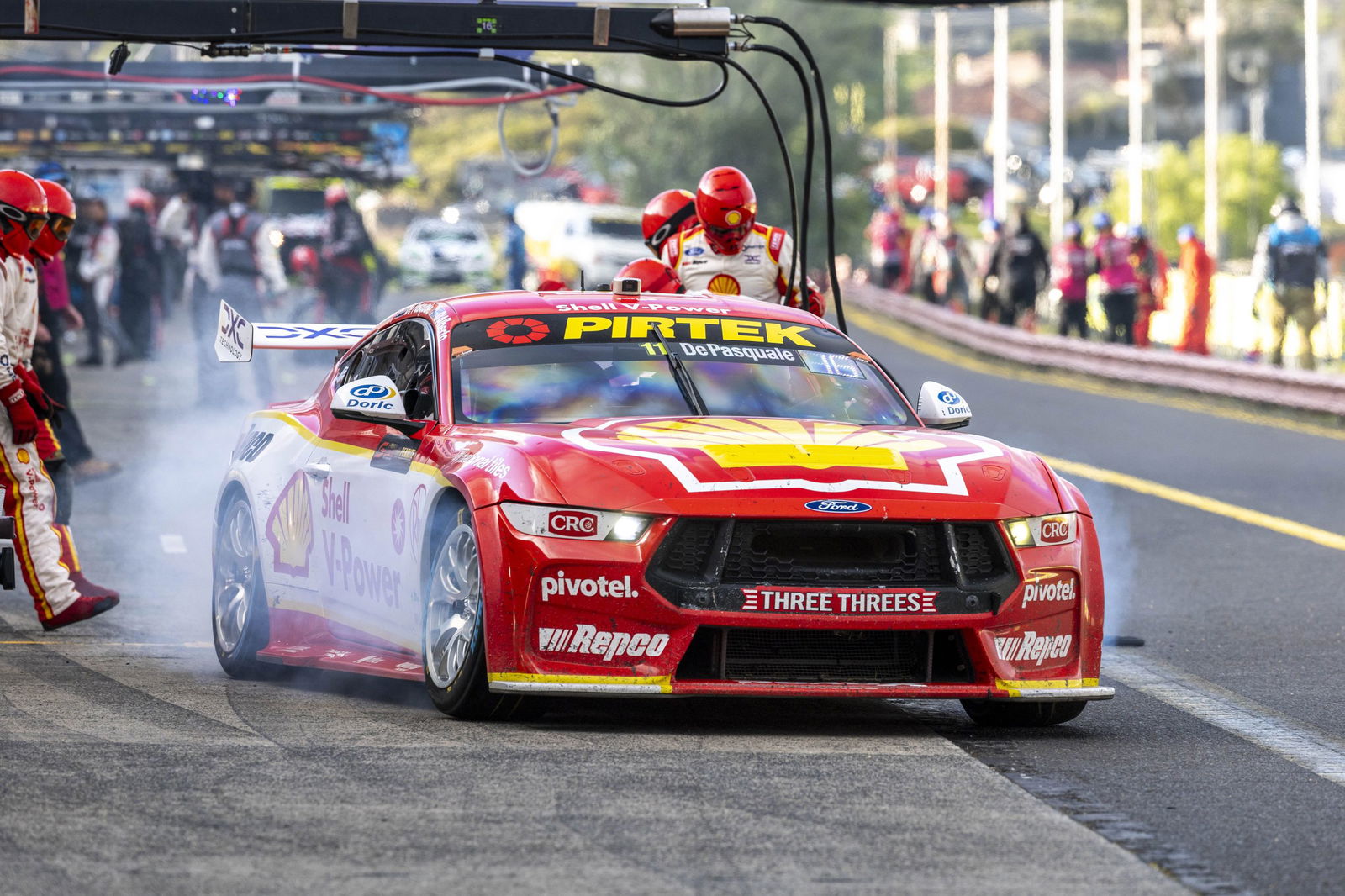

Richie Stanaway’s Grove Racing Mustang suffered a spectacular crankshaft failure during the Sandown race, while two more let go during a subsequent ride day at the venue.
The failures were particularly notable as they occurred on engines that had recently been rebuilt, causing grave concerns for the reliability of the Fords at Bathurst.
It triggered an emergency investigation by engine supplier Motorsport Powertrains, which is effectively run by Dick Johnson Racing.
A supply of Mustang GT3 crankshafts is being sourced for the Bathurst 1000, with rapid rebuilds required before the Great Race once the parts arrive.
“At the Sandown 500 and subsequent rides day, three engines fitted to Ford Mustang Supercars suffered crankshaft failures,” read a statement supplied to Speedcafe.
“With Ford Performance, all Ford teams are working together to remediate the issue for the Repco Bathurst 1000.
“Every Ford Supercar engine has returned to the Motorsport Powertrains engine facility in South-East Queensland.
“Suppliers have been engaged locally and in the United States.
“Ford Performance has undertaken significant engineering development to make the Mustang GT3 crankshaft suitable for use in the Ford Supercar engine.
“Supercars will homologate this change in the lead up to the Bathurst 1000 race weekend. Supply will dictate how many engines will utilise this crankshaft at Bathurst.”
As the final line suggests, it is unclear how many of the new crankshafts will be available for Bathurst, including whether there will be enough for one per car, let alone spares.
There are 10 Ford Mustangs in the Supercars Championship, fielded by five teams.
All of the Ford engines are being rebuilt regardless of how many new crankshafts arrive, with the remainder to be given higher mileage crankshafts that are considered known quantities.
Amid Ford’s reliability scare, there remains uncertainty over whether any engine parity adjustments will be made before the Great Race.
Recent AVL dyno testing in the United States is scheduled to be followed up by on-track running of a Camaro and Mustang next week.
The Chevrolet engines have not been without their own recent reliability issues, including a crankshaft failure on a Brad Jones Racing Camaro during pre-Sandown testing.
Brad Jones explained last week that using cheaper parts within the Gen3 engines has come at a cost.
“What used to happen is the crankshafts were made out of Timken billet, and they would machine them up and give us that crankshaft. It cost around $9000 and it lasted 60,000 kays,” he said.
“What we run now is a forged crankshaft made from 4340 steel, so it’s not nearly as robust and strong. But it’s cheaper, it’s about $4000 cheaper.
“The old crankshaft would do 60,000 kays, the new one, well, it’s done a season and a half.
“I don’t know exactly what the kilometres for a year are, but it will be somewhere between eight and 10,000 kays, so a bit of work to be done there.”



















Discussion about this post